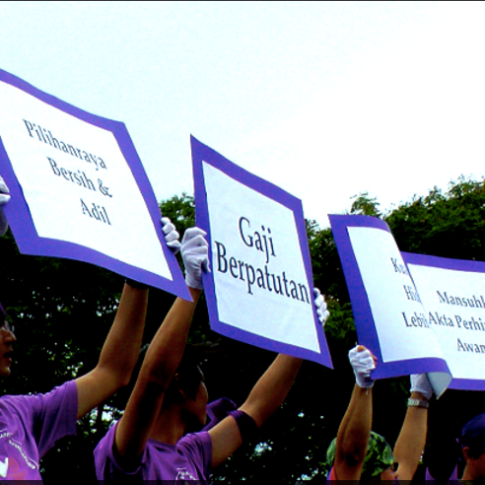
APC is alarmed at the proposed amendments to the Communications and Multimedia Act (CMA). We stand with the coalition of Malaysian civil society organisations known as Net Merdeka in calling for Parliament to reject all amendments.
The Malaysian government has the obligation to protect freedom of expression online and offline. “Yet the proposed amendments are poised to further compromise the rights of individuals to freedom of expression and appear to be politically motivated with the sole purpose of imposing legal restrictions on the public’s right to access to political information and to freedom of expression,” said Jac sm Kee from APC.
The current legal and political environment in Malaysia is one in which repressive laws keep getting worse, including by targeting online activity. Since 2008, the Malaysian government has increasingly turned to regulation of the internet as a means to stifle dissent, as evidenced by the passing of the Prevention of Terrorism Act; amendments to the Sedition Act, which permit removal of online content and the ability to prohibit the use of ANY electronic devices by a person who has published “seditious” materials for an indefinite period of time; and the increasing use of Section 124 of the Penal Code.
These proposed amendments seek to go further to constrain online expression, and run contrary to the guarantees under the Act itself, the constitution and international standards. As the Malaysian civil society coalition noted, “It is believed that the amended provisions would give the internet regulatory body – the Malaysian Communications and Multimedia Commission (MCMC) – more powers to take down online content without proper oversight. These changes, if introduced and passed by Parliament, together with the amendments to restrict bail for all offences under Section 124 of the Criminal Procedure Code, which has been used against activists and the media.”
As Maria Chin Abdullah, former executive director of Persatuan Kesedaran Komuniti Selangor (EMPOWER), stressed in a statement published by APC last year, “Internet freedom is an indispensable component of a democratic society as it enables participation by the people and encourages freedom of expression and freedom of information – without which accountability and transparency are not possible.”
In the words of the former UN Special Rapporteur on freedom of expression, Frank La Rue, attempts by governments to restrict, control, manipulate and censor content disseminated via the internet on the basis of broad and ambiguous laws and/or in a manner that is clearly unnecessary and/or disproportionate to achieving the intended aim are clearly incompatible with states’ obligations under international human rights law, and often create a broader “chilling effect” on the right to freedom of opinion and expression .
We are particularly concerned about proposals to require the registration of political blogs and websites. The mandatory licensing of journalists is inconsistent with international human rights law and the proposed amendments to the CMA would effectively require the registration of the practice of journalism in the online context. The right to express oneself should not be subject to government approval.
We are also concerned about the process, or lack thereof, through which this legislation is sought to be passed. The lack of consultation with experts or civil society, and keeping the public in the dark, indicate the undemocratic nature and intent of the amendments. As the Malaysian civil society coalition expressed, “The public stands to be most affected by the proposed amendments as we constitute the majority of the internet population, and as such, it is critical that our views and voices are duly recognised and reflected.” Revisions to laws governing the internet should be reviewed in an open, inclusive, democratic and transparent nature, in order to better reflect matters of public interest, such as the right to privacy and freedom of expression, assembly and association. Instead, there is a disturbing pattern of extending executive power to target media, political opponents and individuals critics.
We view this development in Malaysia as part of a worrying trend in the region. Instead of encouraging more communication and conversations, governments use these laws to shutter dissidents into silence. Stifling dissent and conversation on political and social issues will compromise the environment for democracy and progress in the state. Beyond curtailing online expression, assembly, association and privacy, the proposed amendments could create a barrier to business investment in Malaysia, and the advancement of economic, social and cultural rights.
The Parliament of Malaysia should reject the proposed amendments to the CMA, listen to the concerns voiced by the coalition of Malaysian civil society, open a dialogue, and ensure that any further amendments to the Act, and other regulations/policies impacting the internet, reflect the input and interests of Malaysian civil society, and the government’s obligation to protect and promote human rights, online and offline.